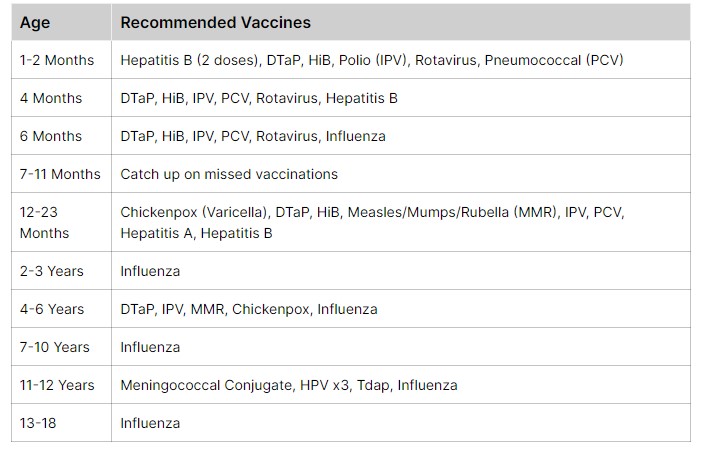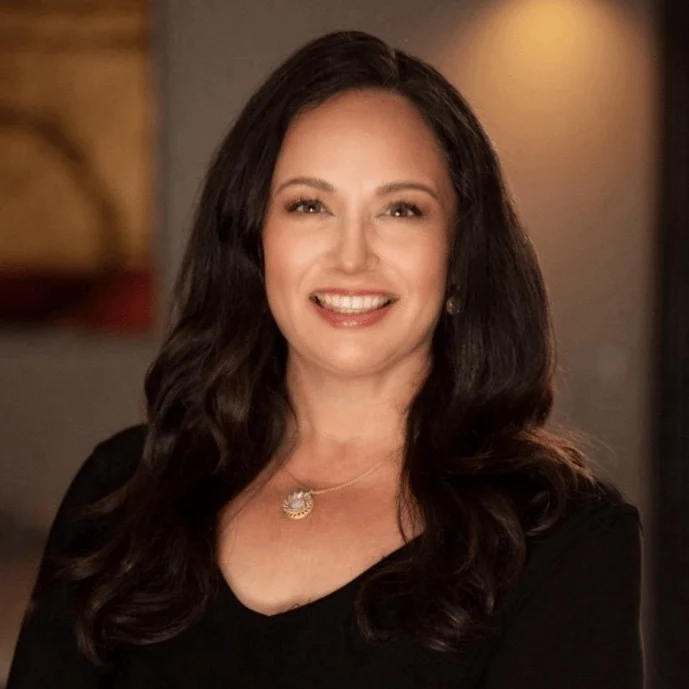
Vaccines can be expensive when you do not have health insurance to help pay for them. In looking at childhood immunizations, which begin at birth, the cost can total up to between $600 and $700 today. In most cases, routine vaccines may have a slight copay with your health insurance, but in many cases, they are covered completely.
Those who do not have health insurance are missing out on the many benefits that come with a health plan, including help paying for vaccines. Let’s talk about what type of vaccine may be needed for your child and yourself, and share some good news about ways you can save money.
Factors Affecting Vaccine Costs
Many things go into how a vaccine is priced, including who manufactures the vaccine, the type and how many doses are required. For example, the DTaP (diphtheria, tetanus and pertussis) is given 5 times over several years of your child’s life, beginning right after birth followed by booster shots.
Types of Vaccines
There are many different vaccines and they all help to prevent different infections by boosting your immune system to fight back more effectively.
Childhood vaccines typically include the following:
- Influenza (Flu): Typically introduced at the 6-month mark, this is part of the recommended vaccines for children and adults.
- HPV: A newer vaccine for children ages 11-12. It is thought to prevent certain cancers in adulthood.
- Hepatitis B: Prevents a common infection in the United States and around the world. Typically, the first in a series is given at the 1-2 month age.
- DTaP: (Diphtheria, Tetanus, Pertussis): The first in the series is administered at 1-2 months of age.
- HiB (Haemophilus Influenza Type B): This prevents many different types of infections, including ear infections, bronchitis, blood infections, meningitis, pneumonia and more. This first in a series is given at 1-2 months of age.
- Polio: This now-inactivated version of the polio vaccine is given in a series beginning at 1-2 months.
- Measles, Mumps, Rubella (MMR): Most children get their first MMR from 12-23 months. This is generally followed by another dose at 4-6 years of age.
- Pneumococcal: A vaccination for pneumonia is generally administered as part of a child’s first set of vaccines at 1-2 months.
Here is a chart that helps explain childhood immunizations and the timeline when they should be administered.

Adult vaccines differ from those recommended for children, but are still important. Some vaccines for adults include:
- Hepatitis B: This is a common infection in the U.S. The vaccine is administered in a series of three shots.
- Influenza: Each year, the flu virus puts about 200,000 people in the hospital. It is recommended to get a flu vaccine at or near the beginning of the winter season, when flu is rampant. This is especially critical for seniors and people at higher risk.
- MMR: The measles, mumps and rubella vaccine is recommended for adults whether they had one as a child or not. Increased world travel from countries without immunization programs boosts the chance of contracting it.
- Pneumococcal: Pneumonia and meningitis can be deadly diseases, especially in the older population. A new, one-dose shot provides lifelong protection.
- TD/Tdap: The Tdap vaccine is only for those 7 years old and older and combats tetanus, diphtheria and pertussis. The tetanus shot should be given every 10 years.
Locations to Find Free or Reduced Cost Vaccines
Just because you don’t have private health insurance should not stop you from vaccinating yourself and your children against harmful agents that live in the environment or can be passed from one individual to another. Here are some places you can look for free or reduced cost vaccines:
- Community Health Center: Often administered by the state or local health department, these sites often provide vaccinations on a free access or sliding scale, depending on your income.
- Adult Programs: Also through a state health department and specific to uninsured adults. You can find one close to you on the Centers for Disease Control and Prevention website.
- Charitable Organizations: These health centers are typically funded by the federal government and offer a variety of services, including low-cost adult vaccines.
- Discount Programs: Programs such as GoodRx will provide discount coupons and a list of retail pharmacies in your area that will honor those coupons.
The Role of Pharmaceutical Companies
Vaccine manufacturers play a large part in how much vaccines cost, but they also offer financial assistance for a wide variety of their products. Here are some common vaccinations by pharmaceutical company and the website address where you ask for assistance.
| Manufacturer | Patient Assistance Website | Vaccines |
| GlaxoSmithKline | GSK Program | Boostrix (Tdap) Engerix-B (hepatitis B) Shingrix (shingles) |
| Merck | Merck Helps Program | Gardasil 9 (HPV) M-M-R II (measles, mumps, rubella) Pneumovax 23 (pneumococcal) Recombivax HB (hepatitis B) Vaqta (hepatitis A) Varivax (varicella or chickenpox) |
| Pfizer | Pfizer RxPathways | Prevnar 13 and Prevnar 20 (pneumococcal) Trumenba (meningitis B) |
| Sanofi | Patient Connection | Adacel (Tdap) Menactra (meningitis A, C, W, and Y) Pentacel (Dtap) Tenivac (tetanus and diphtheria) |
Costs of Common Vaccines Without Private Insurance
The cost of vaccines depends on who makes it, whether it’s for adults or children, how many doses a patient needs and more. Prices change from year to year. Here is a table of some common vaccine costs from 2021, according to the CDC.
| Vaccine | Pediatric/Adult | Average Cost per Dose |
| Chickenpox | Pediatric | $109.36 |
| Flu | Pediatric | $13.76-$18.88 |
| Flu | Adult | $13.29-$16.45 |
| Hep B Series | Pediatric | $12.53-$63.28 |
| Hep B Series | Adult | $24.81-$73.05 |
| HPV | Child/Adult | $140.59-$187.01 |
| MMR | Pediatric/Child/Adult | $21.71-$48.86 |
| Pneumococcal | Child/Adult | $131.60-$143.82 |
| Shingles | Senior | $98.89-$102.22 |
| Tetanus, Diphtheria, Pertussis | Child/Adult | $16.26-$33.14 |
Are COVID-19 Vaccines Free?
You can find free Covid vaccines through the CDC’s Bridge Access Program. This program is for adults without health insurance or those who have health insurance plans that don’t cover the complete cost of the vaccine.
Initiated by the Health & Human Services Department (HHS), most people will be able to receive a free COVID vaccine at their local pharmacies and local public health centers. This program is scheduled to run through December 2024.
People who have health insurance may be able to access COVID vaccines for no cost. Check with your insurance company.

Tips for Reducing Vaccine Costs
Vaccines are important for children and adults alike. Not only will they prevent you from getting sick, a vaccinated community is a healthier community. Some diseases, such as meningitis and flu, have the potential to cost thousands in healthcare – and may even end in death.
Those who are struggling financially and who do not have health insurance may not be able to afford vaccines. But there are ways to save money on vaccine costs and programs designed to help you stay healthy.
Vaccine for Children Program
Administered by the CDC, this is a federally-funded program providing free vaccines to children through doctor’s offices and clinics.
Patient Assistance Programs
Many pharmaceutical companies offer financial help when people need their products. See the list above for a link to these services.
Shop Around
Different retail outlets, pharmacies, your primary health care provider doctor and medical offices charge varying costs. Call around for more information and to see if you can find the vaccine you want for cheaper.
Prescription Savings Cards or Clubs
Many pharmacies offer their own discount savings plans for prescriptions and vaccines, plus there are some companies offering these cards and coupons. Check online or talk to your favorite local pharmacy.
Medicaid, Medicare and the Affordable Care Act
For those who cannot afford or do not have access to private health insurance, there are several options for adults and family members.
- Medicaid: Medicaid offers free or reduced cost healthcare to those who qualify. Medicaid also offers a program specific to children if parents do not qualify, but do not make enough to pay for health coverage for their kids.
- Medicare: Specifically for older adults 65 and older, Medicare is administered by the federal government. Comprised of different parts, Medicare Part B pays for vaccines.
- Affordable Care Act: Passed into law in 2010, the ACA offers health insurance across a wide spectrum of costs and plans. Federal stipends can make a plan through the ACA very low cost.
How Freeway Insurance Can Help Getting Affordable Health Insurance Coverage for Vaccines
If you are searching for an affordable health insurance plan, Freeway can help. We have dedicated, professional and bilingual agents standing by to help you get enrolled in a plan that fits your budget and covers your bases. If you have questions or need help, give us a call today at 877-583-1475 to find out more.



